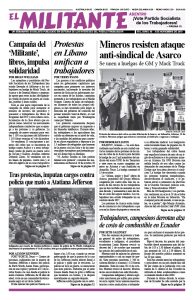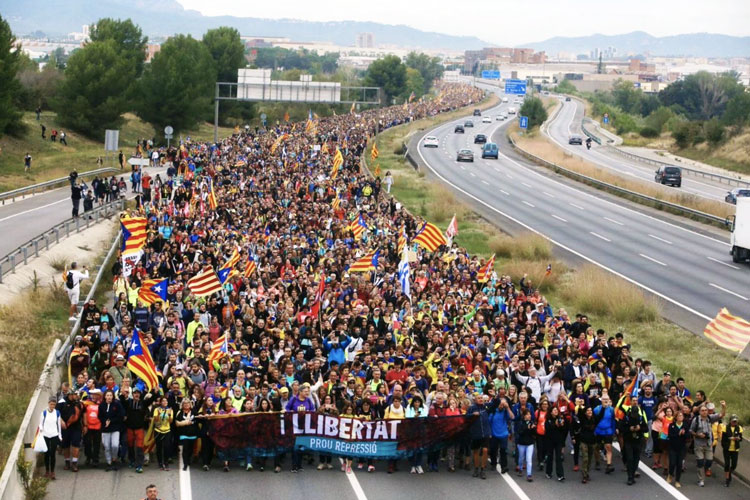Half a million protesters marched from all across Catalonia to converge in the capital Barcelona Oct. 18 after Spain’s Supreme Court four days earlier sentenced nine Catalan parliamentarians to up to 13 years in prison for “sedition.” This comes on top of a general strike paralyzing the city amid renewed calls for Catalonia to secede from Spain.
In 2017, the Catalan parliament declared independence after a “yes” vote won a majority in an Oct. 1 referendum. The Spanish government had declared the vote illegal and state cops tried to prevent it. Madrid retaliated by imposing direct rule and bringing the charges against independence leaders.
As popular protests over the jailings have grown, Spain’s acting Socialist Party Prime Minister Pedro Sánchez said the prison terms were for “criminal conduct” that had fractured Spanish society. Catalonia’s president, Quim Torra, called for a second referendum on independence.
Some 7.5 million people live in Catalonia, the most industrialized section of Spain, with its own distinct history and language. Support for independence has grown in recent years.
Some immigrants from other parts of Spain and abroad — attracted by jobs there — don’t share the pro-independence sentiments. This is fueled by the fact that some Catalan independence party leaders joined in the Spanish rulers’ attacks on working-class living standards.


